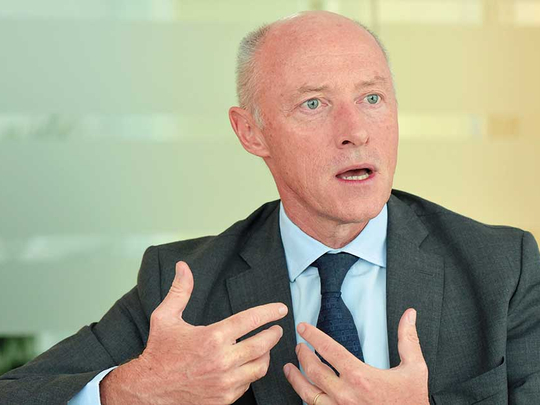
Dubai: L’Oreal, the French cosmetics company, plans to double its turnover in the Middle East by 2020 as well as focus some investments on sustainability to reduce the company’s carbon footprint.
Thierry Houssin, managing director at L’Oreal Middle East, said the company is eyeing expansion into new product categories and growing its market share in segments like make-up and perfumes, which are popular in the region.
“What we have done in the past five years is what we aim to do in the next five years, and that is to double our turnover. We know we can do it by expansion, so, for example, we have categories where we don’t operate, and we can operate when we believe the time has come. We know we have some territories where we can gain market share … so we identify these opportunities where we see potential,” he said.
According to the company’s financial statement, L’Oreal recorded €764.5 million (Dh3.01 billion) in sales in Africa and the Middle East in 2016, marking a rise of around 5 per cent year-on-year.
The single-digit growth in sales comes amid a slowdown in consumer spending in the region on the back of slower economic growth. For L’Oreal, that slowdown coupled with new trends in consumer buying behaviour means a cautious view on 2017 and new challenges this year.
In an interview with Gulf News, Houssin said the company saw a deceleration in terms of consumer spending especially in the second half of 2016.
Digitalisation
“I think 2016, in a way, has been a turnaround year. Yes, it was a difficult year compared to previous years because of oil prices and consequent austerity measures taken in some countries, but more than that, it’s about the change in consumer behaviour. That change started way before the drop in oil prices, and it started with an accelerated digitalisation,” Houssin said.
He added, “Consumers are now more informed, more savvy, more educated, and therefore, it’s a challenge for companies like us to adapt to this new consumer.”
Such a change means consumers demand better in-store services and more personalisation.
But amid the slowdown, some segments of the market in the Middle East have outperformed and continued to see strong growth, Houssin said. These include make-up and fragrances — two areas where L’Oreal plans to expand and grow its market share this year.
“This region remains a great market for luxury — but luxury with sense; luxury that brings a sense of purpose to the consumer. I think the era of bling-bling luxury is over, and it’s a new kind of luxury that we are looking at and that we need to reinvent to justify a certain price,” the managing director said.
Environmental footprint
Away from expanding its market share, another area of focus for L’Oreal is sustainability. In 2016, the company invested around €7 million in optimisation in the Middle East and North Africa. In 2017, L’Oreal plans to invest in building solar panels in its factories, including a facility it has in Egypt, in order to generate clean energy, and is on a drive to make more factories carbon neutral.
By 2020, L’Oreal plans to reduce its environmental footprint by 60 per cent while bringing its products to one billion new customers. It also plans to innovate so that 100 per cent of its products have an improved environmental and social profile by 2020.
“It [the sustainability drive] comes from the analysis of scientists worldwide showing that we’re not talking anymore about a nice-to-have, save-the-planet kind of marketing platform; we are faced with a critical challenge of survival of mankind. It looks dramatic to say that but that’s really the reality that figures are showing,” Houssin said.
Such research on the impact of climate change and carbon emissions has driven heads of state and heads of large corporations to take action to reduce their carbon footprint. In late 2015, the 21st Conference of the Parties (Cop21) in Paris saw nearly 200 countries sign a historic deal on tackling climate change and cutting greenhouse emissions. Large corporations, including L’Oreal, were also part of the agreement.












